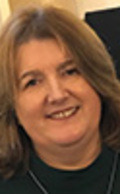
- Religious education to be mandatory from age three
- New curriculum will be more ‘experience-based’
The Foundation Phase in Wales is to be replaced with a new curriculum for children aged three to 16, in which religious education will be made mandatory from the age of three.
The draft curriculum for Wales, which is currently out for consultation until next month (July), will apply to schools and funded non-maintained settings.
It will be phased in from September 2022 to replace the current Foundation Phase for children from age three and Key Stages 2, 3 and 4.
However, principles of the Foundation Phase, including a commitment to play, will remain in place.
The aim of the new curriculum is to make learning more experience-based.
For children under the age of three, the Birth to Three Matters non-statutory framework will remain.
Under the proposed curriculum, traditional subjects will be replaced with six new Areas of Learning and Experience (AoLEs):
- Expressive arts
- Humanities
- Health and well-being
- Science and technology
- Mathematics and numeracy
- Languages, literacy and communication
Curriculum differences
Other changes include when children are assessed. Children’s progress will be measured through progression steps with expectations at ages five, eight, 11, 14 and 16. The progression steps aim to provide more flexibility and recognise that children develop at different rates, moving away from judging children as either ‘meeting’ or ‘not meeting’ outcomes.
In the draft, the Welsh Government states, ‘We recognise that learning should be seen as similar to an expedition – with stops, detours and spurts.’
It adds, ‘The aim is to provide a clear picture of the learner’s achievements which will help determine next steps – and not make “best-fit” judgements based on the achievement outcomes for each progression step.’
Under the 2022 curriculum, religious education (RE) will become mandatory for children from the age of three attending early years settings. The proposals make clear teaching of the subject must include non-religious beliefs.
 Professor Kate Adams, director of research and knowledge exchange at the University of Winchester, former RE lecturer and a member of the Journal of Religious Education and the International Journal of Children’s Spirituality’s editorial boards, has welcomed the move.
Professor Kate Adams, director of research and knowledge exchange at the University of Winchester, former RE lecturer and a member of the Journal of Religious Education and the International Journal of Children’s Spirituality’s editorial boards, has welcomed the move.
She told Nursery World, ‘High-quality RE can nurture children’s natural inquisitiveness about the world and others. It can help them to understand the different ways in which people find meaning and purpose, through religious and non-religious lenses alike. In so doing, RE can also support young children in their inherent quest for meaning and purpose in life.
‘Non-specialists can be anxious about teaching RE, and it is important that nursery teachers are given appropriate support. But it is worth remembering that many adults underestimate children’s abilities to engage with those deeper issues which lie at the heart of RE. Often, children are far more comfortable engaging with these “big” ideas than adults are, and nurseries have much potential to offer wonderfully creative and rewarding sessions.’
Another change is the move to teach children international languages at an earlier age. Currently there is more of an emphasis on learning languages once children start secondary school in Wales, but the new curriculum proposes children start learning international languages in primary school.
There will also be a move to a single Welsh-language curriculum regardless of whether Welsh is a first or second language. Liz Sheen, early childhood practice and childhood studies programme leader at Wrexham Glyndwr University, said this means that pre-school children will start learning the language.
The move forms part of the Welsh Government’s aim to achieve a million Welsh speakers by 2050.
Ms Sheen added, ‘The Welsh Government is aiming for a more holistic curriculum, which gives schools more freedom. It is a more focused curriculum, which has to be better.
‘I think that moving to the new curriculum will be a bigger change for older children than those in the early years.’
Sector response
 Emeritus Professor Karen Graham, anearly years consultant, warned that while the draft curriculum is a ‘positive approach with high aspirations that could be world-leading, in order for it to be successful, staff will need a lot of education and training.
Emeritus Professor Karen Graham, anearly years consultant, warned that while the draft curriculum is a ‘positive approach with high aspirations that could be world-leading, in order for it to be successful, staff will need a lot of education and training.
‘The draft curriculum supports a forward-thinking, enabling and evolving approach for practitioners and teachers who are able to decide the best approach to supporting individual children. However, I worry about the practitioners who are overly reliant on what is described as a very “prescriptive approach” currently. Delivery will require a shift from “what will be delivered” to a deeper understanding of child development, how children learn and action learning in practice. The investment required for practitioners/teachers is likely to be high.
‘Implementation is key and the triangulation between delivery, quality assurance and inspection is likely to be a strong determinant of success.
‘Once the curriculum is rolled out from 2022, it will need to be continuously evaluated.’
Early Years Wales agreed that training and guidance for the workforce will be a key factor in ensuring success.
Chief executive Jane Alexander said, ‘We look forward to seeing the development of guidance that is clear in its recognition of each child’s development.
‘Training and guidance for the whole of the workforce will be a key factor in ensuring that leaders in all settings and schools will deliver consistent high-quality practice to ensure positive outcomes for every child’s learning journey.’
 Sandra Welsby, national manager of National Day Nurseries Association (NDNA) Cymru, said, ‘We welcome the fact that the Welsh Government is seeking feedback. It is important that the early years sector has an opportunity to review this.
Sandra Welsby, national manager of National Day Nurseries Association (NDNA) Cymru, said, ‘We welcome the fact that the Welsh Government is seeking feedback. It is important that the early years sector has an opportunity to review this.
‘NDNA Cymru will be reviewing the curriculum and seeking the views of our members in Wales in the coming weeks. At the same time, it is important that childcare and early education providers take part in this process and give feedback as well.’
Areas of Learning and Experience (AoLE) in the new curriculum for Wales for children aged three to 16
Expressive arts
This area of learning centres on five disciplines – art, dance, drama, film and digital media and music. The draft document says this area ‘provides many opportunities for experiences such as visits to theatres and galleries, and for bringing the specialist expertise of external practitioners into the classroom’.
Health and well-being
Covering healthy eating, physical activity, the importance of resilience and self-regulation. It is about the physical, psychological, emotional and social aspects of our lives.
It recognises good health and well-being as a key enabler of successful learning and will support learners to develop and maintain not only their physical health and well-being, but also their mental health and emotional well-being, as well as developing positive relationships in a range of contexts.
Science and technology
Science and technology draws on the disciplines of biology, chemistry, computer science, design and technology and physics to enhance our knowledge and understanding of the world. Computation is a new curriculum focus, one which addresses how computation can be applied to solve problems across science and technology.
Humanities
Humanities encompasses geography, history, religious education, business studies and social studies. These disciplines share many common themes, concepts and transferable skills, while also having their own body of knowledge and skills. Likewise, learners and teachers may reference other complementary disciplines, such as classics, economics, law, philosophy, politics, psychology and sociology, if and where appropriate.
Mathematics and numeracy
The draft document says, ‘A love of music and songs may be learners’ first encounter with numbers and, as they begin to understand the relationship with numbers through songs with greater maturity, music will also see the development of structure and form, patterns and rhythm, repetition, phrasing, section, round and canon’.
Languages, literacy and communication
The draft proposals recognise that some children starting school may have a language delay and says that schools will need to plan and put in place specialist support where appropriate. It also says that with regard to writing, schools need to plan for the specific requirements of left-handed learners.









